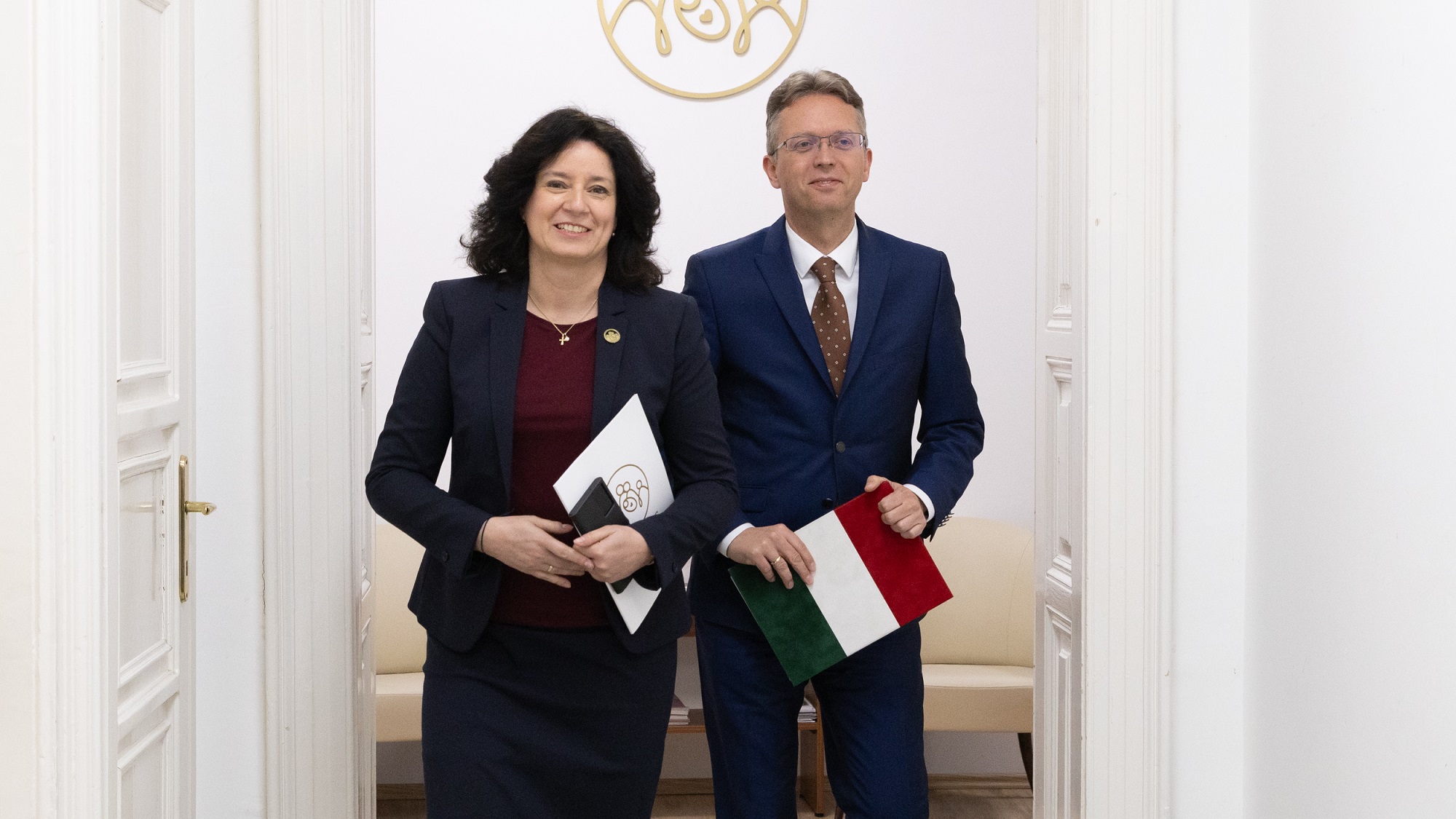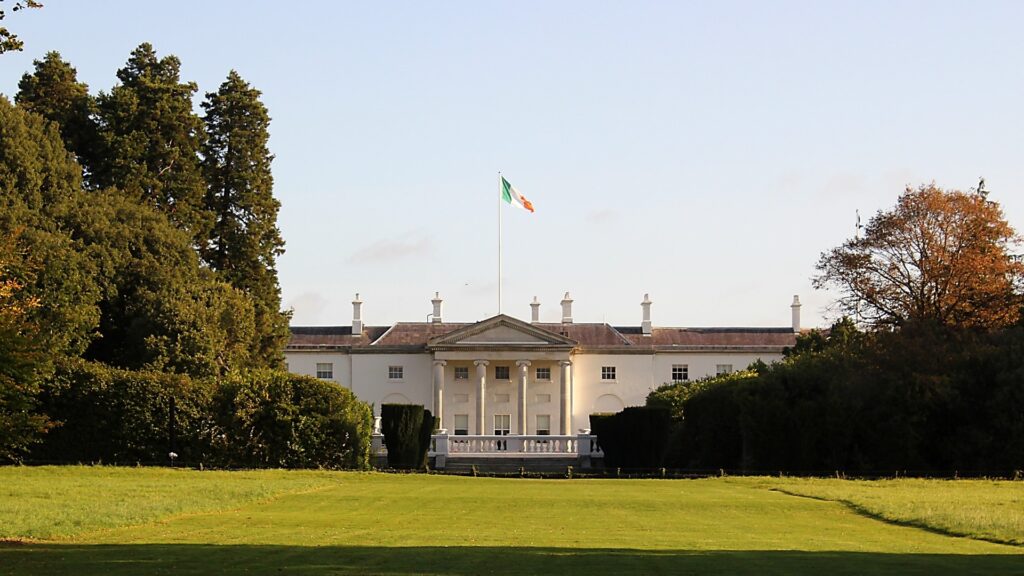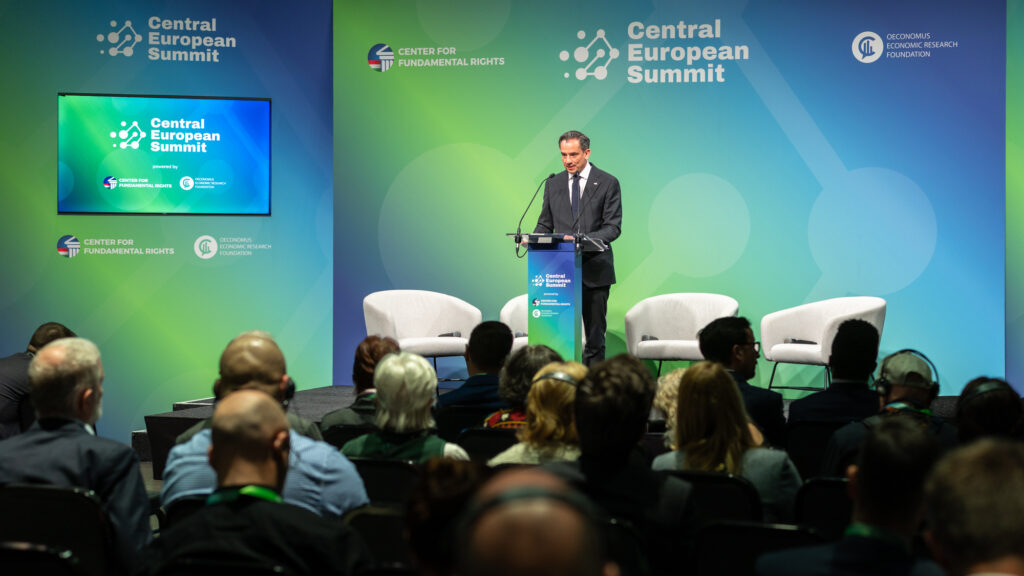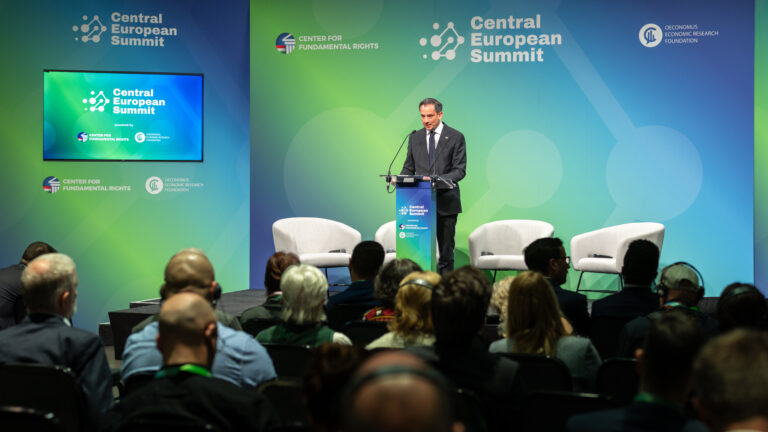Minister of Culture and Innovation Balázs Hankó of Hungary held a joint press conference with Mária Kopp Institute for Demography and Families (KINCS) President Tünde Fűrész on Monday, 14 April in Budapest, Hungary. The venue was the headquarters for KINCS, a non-profit research institute founded in 2018 dedicated to issues of parenting and childbearing in Hungary.
Minister Hankó started by declaring that Hungary is ‘the most family-friendly country in Europe’; and its government is committed to traditional family values and the traditional family model. All the while, as he put it, the European Union is engaging in ‘family persecution’. He also believes that the EU’s migration policy is in stark contrast with the interests of the local European families.
The Minister went on to give details of the volume of government aid to families in Hungary. As he pointed out, in 2010 the then-incumbent socialist government gave 960 billion HUF ($2.66 billion) to family support, which was 3.5 per cent of the annual GDP at the time. The current right-wing populist government is giving 3.814 trillion HUF ($10.56 billion) to family support this year, which is 4.3 per cent of the GDP.
As a result of this action, Hungary went from being the last in fertility rate in the EU in 2010 to third in 2023. And, as Minister Hankó highlighted, did so while migration-background births are negligible in the country. In contrast, one-third of births in France and one-quarter of births in Germany are related to migration.
While the COVID pandemic and the Russo–Ukrainian war created much uncertainty in the European economy, Hungary and Hungarian families had prevailed through that period, the Minister declared. ‘The families give our economy its strength,’ he added.
He then proceeded to list recently announced initiatives by the Fidesz government that provide additional support to families. The family tax credit per child has been raised, and the income tax exemption will be gradually expanded to mothers of three, then to mothers of two by 2029, from the currently included mothers of four. Additionally, mothers who choose to return for a couple of hours a week to their jobs after their child turns three months old will be able to claim 70 per cent of their infant child care support payments (CSED). Minister Hankó explained that this measure is specifically tailored to occupations such as hairdressers or estheticians, who tend to lose a significant portion of their clients during their years-long maternity leaves.
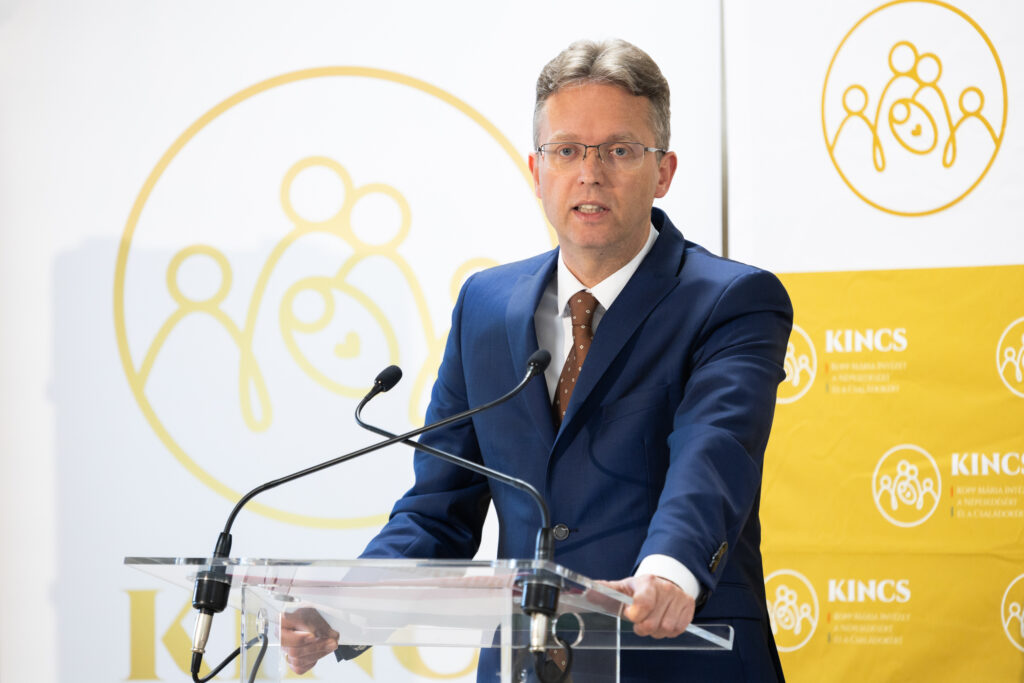
KINCS President Tünde Fűrész took the stage next. She shared the findings of a recent poll conducted by her institute.
The poll was conducted between 5 March and 21 March, with a sample size of 1,000 people. According to the survey, 92 per cent of Hungarians have heard of the new government initiative that expands the income tax exemption to mothers of two. 74 per cent support the measure. Women are more likely to be in support than men; while Budapest residents with university degrees are less likely to support it than the average.
82 per cent of people believe that the infant child care payments are a significant help to Hungarian families. The majority of Hungarians have the same positive opinion of all other family policies by the Fidesz government. Support tends to increase by 1–2 percentage points if the respondents are asked about their own families specifically, as opposed to Hungarian families in general, Ms Fűrész shared with the audience.
Related articles:

